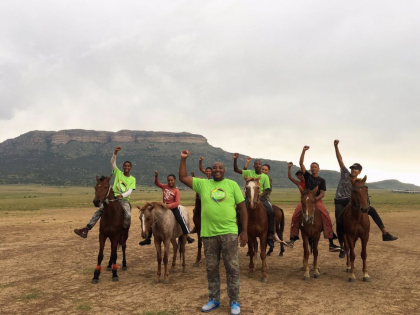
The appearance of democracy
The protests against illegal mining in Ghana are revealing how the country's political class still fears an engaged citizenry.

The protests against illegal mining in Ghana are revealing how the country's political class still fears an engaged citizenry.

Without an immediate halt to US arms to Israel, it’s hard to see why Israel should stop slaughtering civilians in Gaza and Lebanon.

This month, Algeria quietly held its second election since Abdelaziz Bouteflika was ousted in 2019. On the podcast, we ask what Abdelmadjid Tebboune’s second term means for the country.

Assassinated in 1978, Henri Curiel was a Jewish Egyptian Marxist whose likely killers include fascist French-Algerian colons, the apartheid South African Bureau of State Security, and the Abu Nidal Organization.

Why is the US ultra-right turning to Rhodesia as their model for a white supremacist state?

In 1973, Josie Fanon interviewed then-ANC president Oliver Tambo about Israel and apartheid South Africa. Originally printed in French, it is now available in English for the first time.

En 1973, Josie Fanon a interviewé Oliver Tambo, alors président de l’ANC, à propos d’Israël et de l’apartheid en Afrique du Sud. Il est désormais disponible pour la première fois depuis sa publication originale.

Given his track record of sowing division and making empty promises, South Africans should be wary of treating its new Minister of Sports, Arts and Culture as a lovable buffoon.

A proposed green hydrogen project in Tunisia prioritizes European energy needs over local sovereignty.

Digital activism is playing a significant role in amplifying the impact of the #RejectFinanceBill2024 and #RutoMustGo protests, but how effective can it ultimately be?

Anti-government protests have spread to Uganda, where ordinary people are tired of passively accepting elite misrule.

Domestic workers in the Gulf typically face a double bind: as a foreign worker, you are governed by kafala laws, while as a female, you are governed by the male guardianship system.

As he loses his grip on power, Kenya’s president is losing the plot.

Days before mass protests broke out across Kenya, the national government enacted a mass, unjustified forced removal campaign across Nairobi.

It's no longer just about the finance bill. Kenyans want fundamental change.

The results of France's snap election show that there is an alternative to right-wing nihilism and business-as-usual centrism.

What does it benefit a man to gain a finance bill but lose his country?

In France, the nationalist right wing is ascendant. This week on the AIAC podcast, we discuss the country’s upcoming legislative elections.

For some years now, the people of Eastlands in Nairobi have been remaking the city in their own image of green development.

A solidariedade socialista na Angola e Moçambique pós-coloniais tornou as pessoas queer invisíveis. Revisitar esse apagamento nos ajuda a reinventar a libertação de forma legítima.